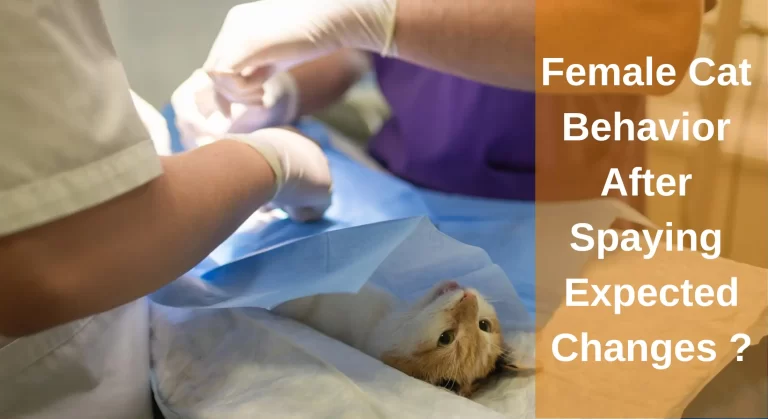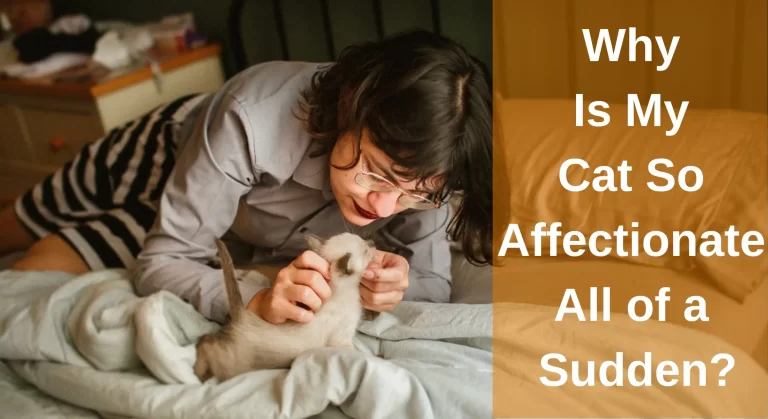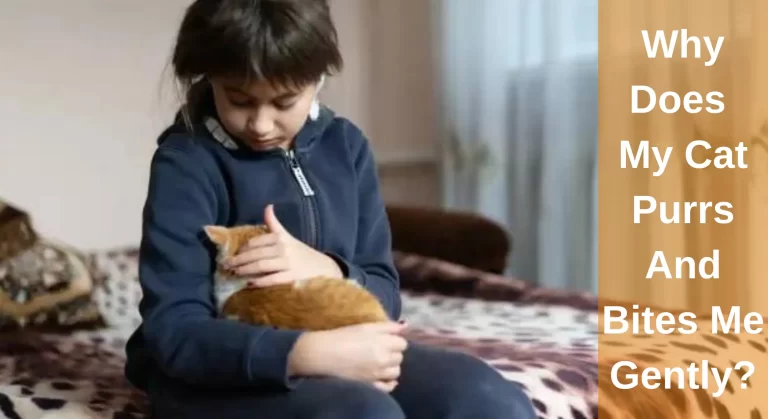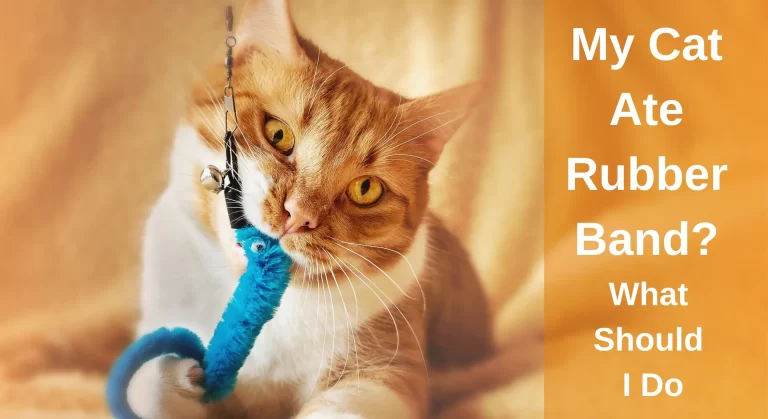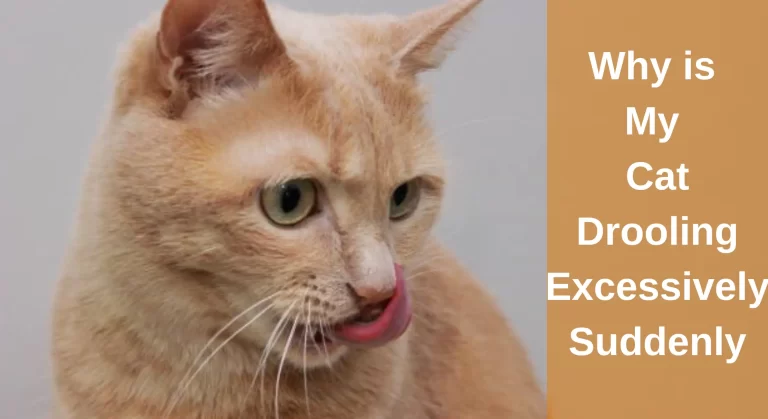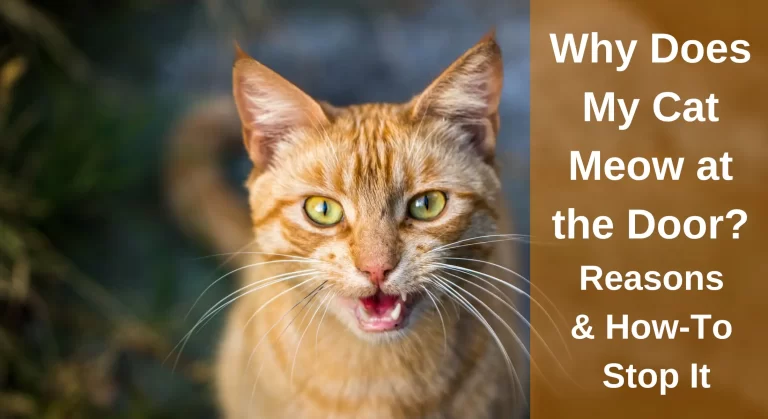Why Does My Cat Bite My Hair And Head? All You Need To Know
Many cat owners might inform you that having a cat may inevitably result in an odd bite or scratch. Sometimes cats prefer to utilize teeth, which sometimes happens for communication. Cat bites can also occur on the head region. Many people now wonder why their cat keeps biting their heads.
So, Why Does My Cat Bite My Hair And Head? Cats will nip at the owner’s hair or head for various reasons, including attention seeking, affection, boredom, curiosity, or even as a form of play. Hair may also have a unique texture or taste that your cat finds appealing. Additionally, cats may engage in hair-eating behavior as a form of grooming, as they naturally groom themselves and others in their social group.
Cat bites on their hair and heads are unpleasant and frightening for cat owners! So, they frequently ask this question why their cat bites their head, or how can we stop them from doing this? No need to worry; this article will discuss the primary causes of cats attacking the owner’s head and how to prevent it. Let’s read it to find the reasons behind your cat’s rude behavior.
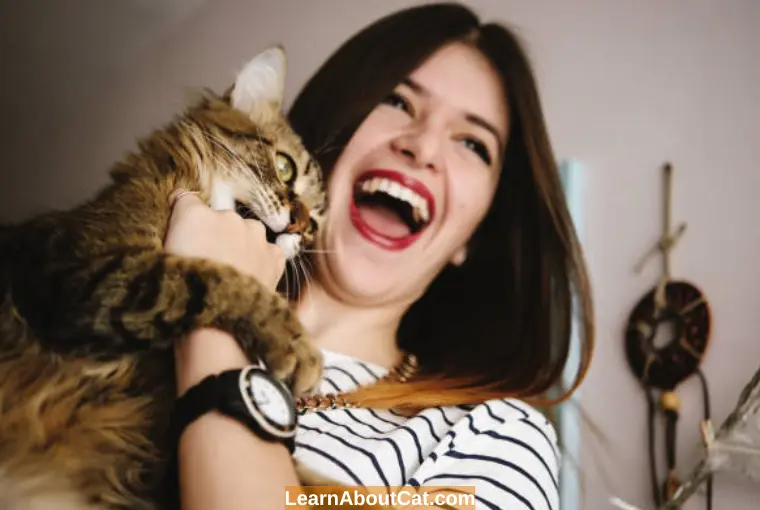
Reasons Why Does My Cat Bites My Hair
Although hair and head biting can be slightly irritating and troublesome, there will always be good reasons behind it. Following are the few most possible causes for a cat biting on your head.
1. Sign of Love
Adult cats will occasionally bite the head, particularly when they’re still kittens, and this primary reason is undoubtedly very common. When a kitten bites, it may be because of love or simply a warning that the cat doesn’t have much grip over its jaws. A kitten may intend to exhibit grooming behavior yet end up clawing you.
Even mature cats have been known to bite humans as a gesture of love. Whenever a cat bites, it’s acceptable to tell him no or perhaps to scream “Ow!” in pain; both responses will teach him that biting is bad manners and that this hurts.
2. Attention-Seeking Behavior
One of the most common reasons cats lick or chew their owners’ hair is they seek attention. Cats are social creatures and enjoy interacting with their owners, and they may resort to licking or chewing hair as a way to get their owners’ attention.
If your cat is engaging in this behavior, it might be because they are feeling lonely or neglected and want you to pay attention to them
3. Cats Like Your Hair Taste
This explanation might seem a little strange compared to some others, but it’s real! Some cats enjoy the flavor or feel of the hair when they put it in their mouths. In this instance, biting someone is less of a concern than satisfying their oral addiction.
Switching the hair care products can occasionally stop them from attacking you and assist in stopping this from grabbing the hair. The cat may be less likely to chew on the hair if individuals use a hat or other head covering while sleeping. Items with a citrus aroma could be an especially alluring choice.
4. A sign of a Cat Expressing Some Possessiveness for You
Additionally, when a cat feels possessive, as well as they are seeking human interest, it may start biting. This is typical when you introduce a new pet animal into the house; it could even arise when you welcome a new child. Visitors may occasionally cause the cat to become more aggressive, which could result in bites.
Preparing for times when a pet cat could feel a bit more demanding and aggressive is the best approach to handle this. Every moment a family experiences a huge change, particularly when you’re welcoming a new person home, make sure your cats receive lots of care.
Also Read: I Got A New Kitten And My Cat Hates Me – What Do I Do?
5. Grooming Behavior
Cats are natural groomers and spend much time grooming themselves and other cats. Licking or chewing hair can be a part of this grooming behavior, and your cat might be trying to clean your hair or remove any knots or tangles.
This behavior is more common in cats with long hair or hair prone to tangling.
6. Boredom or Anxiety
Cats can become bored or anxious when they are left alone for long periods of time or when they don’t have enough stimulation. Licking or chewing hair can be a way for them to alleviate their boredom or anxiety.
If your cat is engaging in this behavior, it might be because they need more playtime or mental stimulation.
7. Nutritional Deficiencies
Cats require a balanced diet to stay healthy, and if they lack certain nutrients, they may develop unusual behaviors. Licking or chewing hair can indicate a nutritional deficiency, such as a lack of protein or vitamins.
- Suffering from Pica: Pica is a condition in cats where they are compulsive to eat non-food items, such as hair, plastic, paper, or clothing. This abnormal behavior can harm your cat’s health, leading to digestive problems, intestinal blockages, or nutrient deficiencies.
If you suspect that your cat might have a nutritional deficiency or pica syndrome, it’s important to consult with your veterinarian.
8. Stress or Anxiety
Stress and anxiety can manifest in various ways in cats, including through unusual behaviors like licking or chewing hair. If your cat is feeling stressed or anxious, it may resort to this behavior as a way to self-soothe.
It’s important to identify the source of your cat’s stress and take steps to address it, whether that means providing them with more attention or consulting with your veterinarian.
9. Compulsion
It is important to seek the advice of a qualified behaviorist or veterinarian if the cat seems to have a persistent attitude of biting and you’re unable to divert him when he has the head or hairs in the target. One can prevent the bite by making a note of the possible causes. The behavior, though, could be brought on by outside anxiety or the cat’s desire to be satisfied.
Whether this happens, a behaviorist may help you address the underlying issues and redirect the cat’s desires in healthier and acceptable directions.
10. Other Factors
Your cat may find biting upsetting, but you must have patience with him. Biting, including head nibbling, is more frequent when the cat is agitated or when things are changing. Relocating, taking home new animals, and simply rearranging your furniture can increase your cat’s propensity to attack.
Additionally, it’s very hard to prevent the cat from attacking. Although you may work together to make this extremely uncommon, an anxious, frightened, or overexcited cat will usually always claw. Although it may not have been a major bite, the cat is always prepared to attack if necessary.
Interacting with the cat to prevent them from attacking the head, particularly when you’re asleep, can be accomplished by using a mixture of redirection, speaking no, and employing other measures to stop this behavior.
Is It Bad if My Cat Chews My Hair?
It’s not ideal for your cat to chew your hair, it is not a desirable behavior and can be problematic for a few reasons.
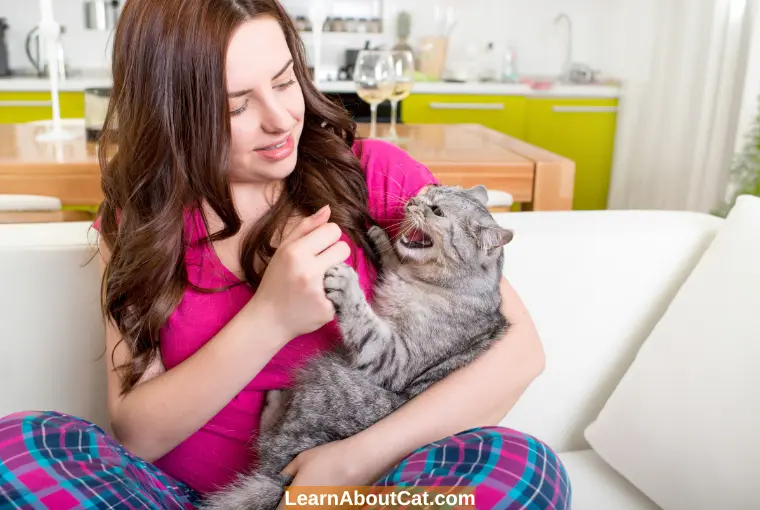
Firstly, if not properly passed, your cat may accidentally ingest strands of hair, leading to hairballs or digestive problems.
Additionally, if your cat is chewing on your hair, it may be ingesting oils or hair products that could potentially upset its stomach or cause other health issues.
Moreover, hair chewing can indicate an underlying issue, such as anxiety or boredom. If your cat is consistently chewing on your hair or showing other signs of stress or discomfort, it’s important to address the issue and seek advice from a veterinarian or animal behaviorist.
Why Does My Female Cat Bite My Head?
Males are less likely as compared to females to attack you in the head. This is due to the fact as they appear to dominate their masters slightly more often, and they appear just to be slightly more prone to display love through their teeth.
The main reason females are slightly more prone to claw your head is that their hormonal cycle isn’t normal. Females are much more inclined to bite to get attention when they’re in heat. However, they may not directly aim at your head.
Why Does My Cat Bite My Head and Pull My Hair?
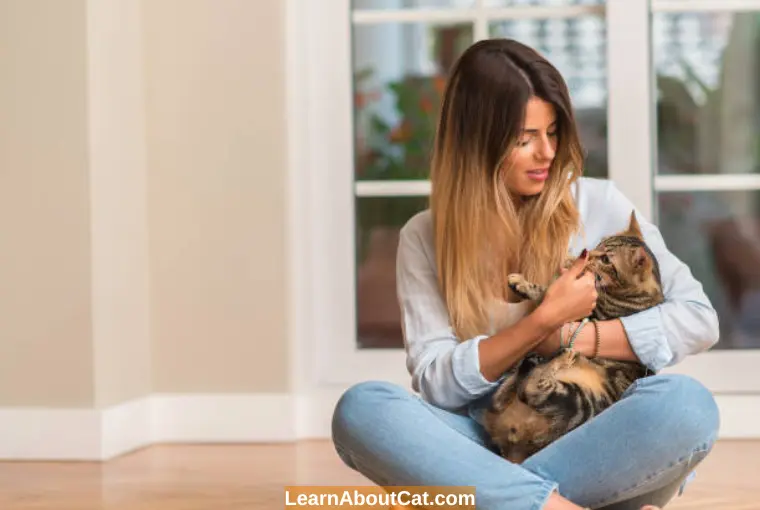
Any cat that tugs the hair and claws your head can be primarily for hair. In addition to biting, this habit can also include cleaning. They’re attempting to clean you since the hair resembles feline fur in both appearance and texture; it’s a form of return.
But, because the nibbling and grabbing may be so terrible, it’s a fine decision to divert the cat’s behavior and teach her that the nibbling and grabbing of the hairs hurt.
Why Does My Cat Bite My Head When I’m Sleeping?
If the cat bites your head while you’re lying, it’s probably because of bored or nervousness. The cat is most likely attempting to get you to know by doing this. They may far more simply ask for your affection, care, or consolation after you’re awakened.
To aid with anxiousness, start offering your extra cat toys, employing relaxing pheromones, or utilizing other methods.
Contact your vet for further alternatives and suggestions on controlling the biting habit if neither method succeeds.
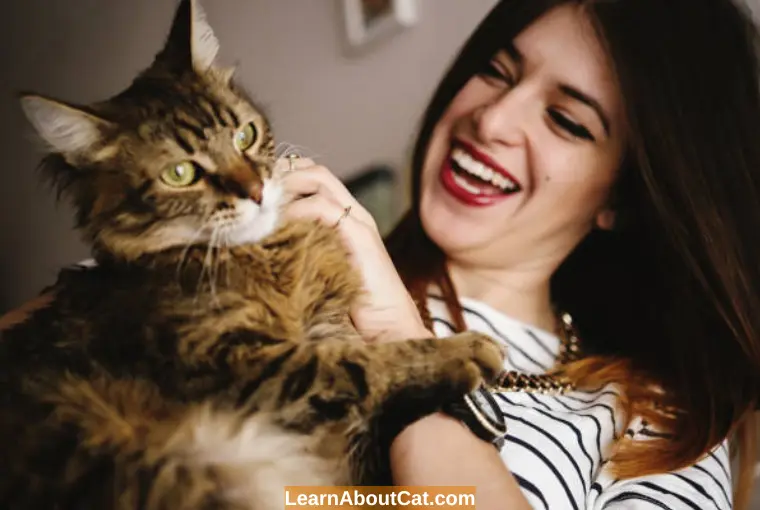
When Should I be Concerned About My Cat’s Hair-Eating Behavior?
Finding out why a cat behaves in this way from the beginning is the initial step toward reducing it. If your cat is exhibiting excessive hair-eating behavior or is consuming large amounts of hair, it may be a sign of an underlying health issue or behavior problem.
If it becomes a persistent habit, you should consult your veterinarian to rule out any medical issues and determine the best course of action to address the behavior.
In extremely extreme cases, mood-altering medications such as Clomipramine and Prozac may help in quitting obsessive behavior.
How to Discourage Your Cat from Biting Your Head?
As a cat owner, you may struggle with a cat that won’t leave your hair alone. Whether your cat is nibbling on your hair, playing with it, or simply refusing to let go, you can do a few things to address the behavior.
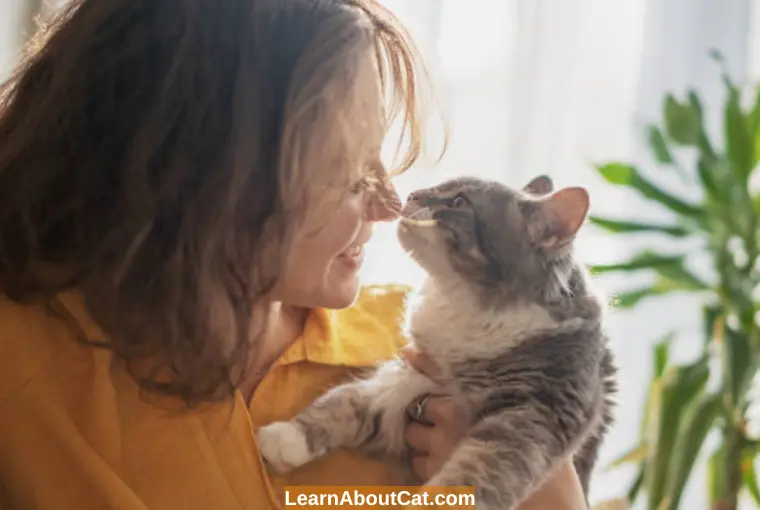
1. Whenever a Cat Attempts to Claw the Head, Back off
It is done to let your cat know that its conduct is annoying to you. Your cat could assume you’re okay with its behavior if you remain in the same spot as it attacks your head.
2. Change its Focus
Your cat could just be bored. If your cat starts biting your hair, try to redirect their attention to a toy or treat. You can perform the following things to provide your cat with some additional activities.
- Make Sure Your Cat has Playthings to Engage with: A cat can avoid boredom by playing with toys. Keep the cat’s regular play schedule as varied as you can. Old toys might become boring for cats; however, you can apply catnip on them to pique their interest once again. Providing toys and playtime can distract your cat from your hair and redirect their attention to appropriate activities.
- Offer a Sturdy Scratching Post: A decent scratching post will allow the cat to relax in the appropriate place.
- Schedule a time for playing with your pet: Make it a routine to spend a minimum of 15 minutes each day playing with the cat. When a cat starts playing, owners may include exercise by using a laser.
This can teach them that biting hair is inappropriate behavior and give them a positive alternative.
3. Keep Your Hair Covered or Tied Back
If your cat is persistent in their hair-focused behavior, you may need to take steps to limit its access to your hair. Keeping your hair covered or tied back can be helpful, particularly when you are relaxing or sleeping.
4. Seek Professional Help
If your cat’s hair-focused behavior is persistent, excessive, or causing harm, it may indicate an underlying health or behavior issue. Consulting with your veterinarian or a certified animal behaviorist can help determine the underlying cause and develop a plan to address the behavior.
Frequently Asked Question
Can hair biting be a sign of aggression in cats?
Yes, in some cases, hair biting can be a sign of aggression. It’s important to observe your cat’s behavior and consult a vet if the behavior becomes aggressive or persistent.
How do I get my cat to stop eating and chewing my hair?
The best method to convince the cat to quit chewing human hair is to provide it with something different to chew on, like toys, meals, cat grasses, or even just a small piece of leather.
Why does my cat bite my head in the morning?
Whenever a cat attacks people while you’re sleeping, it’s because they’re lonely and wants someone to get out of bed so it can play. They might also be cleaning you or relaxing.
Why does my cat bite my hair when I’m sleeping?
When you are sleeping, and your cat seems particularly interested in licking or chewing your hair, it may be a sign that they are simply bored and crave your attention. Cats, just like us, get bored, and it can be fun to wake you up!
How can I show affection to my cat without letting them chew on my hair?
You can show affection to your cat by providing them with appropriate toys, playing with them, grooming them, and offering them treats. It’s important to redirect your cat’s attention away from chewing on your hair and onto more appropriate items.
Why is my cat nibbling? head nibbling
You may have noticed that your cat nibbles you playfully when she wants to show affection. This is very different from a defensive or fearful bite which means harm.
What are some other grooming behaviors my cat may exhibit?
Cats exhibit various grooming behaviors, including licking and grooming themselves and their human companions. These behaviors are natural and typically not cause for concern.
However, if your cat’s grooming behavior is excessive or causing harm, you should consult with your veterinarian to determine the underlying cause and develop a plan to address it.
Is hair-chewing behavior in cats more common in certain breeds?
There is no evidence suggesting that cats’ hair-chewing behavior is more common in certain breeds. However, certain individual cats may be more prone to pica behavior due to underlying health or behavioral issues.
Wrap Up!
In conclusion, hair-chewing behavior in cats is a common problem that can be caused by a variety of factors, including pica, stress, anxiety, and nutritional deficiencies. While this behavior may seem harmless at first, it can lead to a variety of health risks for your cat.
As a responsible cat owner, seeking veterinary care is important if you suspect your cat is suffering from pica or hair-chewing behavior. Proper care and attention can often correct this behavior through positive reinforcement training, environmental changes, and addressing any underlying issues.
Remember to show affection to your cat in ways that don’t involve letting them chew on your hair, and provide appropriate toys and items for them to chew on instead.
Who is Isabella?
My name is Isabella, and I am a dedicated and knowledgeable cat enthusiast. With years of experience caring for cats and a deep love for felines, I made a mission to help other cat lovers navigate the challenges of cat ownership.

